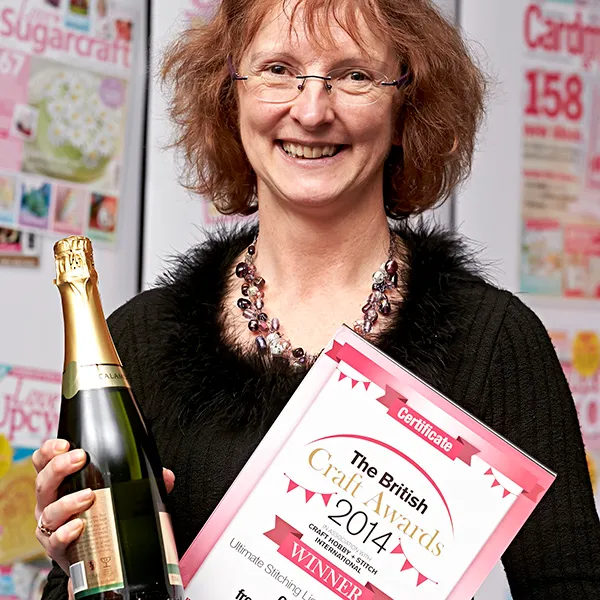Not so long ago, crafting was considered by many to be a little old-fashioned, but in recent years it’s become seriously cool. It’s exciting to see that more and more individuals are picking up needles, wool, beads and thread to create one-of-a-kind pieces, with the current job market also encouraging people to use their crafty skills to earn extra income.
Websites such as Etsy, Folksy and notonthehighstreet.com are testament to the power of handmade – Etsy alone is expected to hit sales of $1 billion (approximately £662 million) in 2013. These sites are a great launch pad, offering an opportunity to dip your toe into the world of selling, and get your designs out there.
You don’t need to be a high-flying corporate type to run your own business – all sorts of people set up craft companies. Busy mums can fit in the work around their children, while career girls can run a company outside office hours. And for helpful advice on paying tax, just visit www.hmrc.gov.uk.
All stitching entrepreneurs share a love of crafts and an urge to succeed, and with the rise of the internet, it’s become easier than ever to set up a company and work wherever – and whenever – takes your fancy. All you need is enthusiasm and determination, so read on to be inspired by three stitchy entrepreneurs. They might even encourage you to take the plunge!
Main image: Kate Golby, Bothy Threads. Picture by Edward Moss www.edwardmoss.co.uk. All rights reserved. © Craft Awards 2014
Kate Golby, owner of Bothy Threads
I first started Bothy Threads 15 years ago. Stitching has been my life-long hobby and when I ran out of things I wanted to stitch, I simply came up with my own! I had some time at home and so was able to stitch away, creating my own designs. I approached a few shops who bought one or two of them, then progressed to a stand at a trade show and over the years, the business has grown and grown. Things really took off when I began to approach artists, asking if I could use their work as a basis for designs. I now use about 20 artists’ work under license and produce about 150 different designs. I write the instructions and convert the artwork into charts myself, but have helpers to sort threads, cut material and pack the kits.
Running a business from home was fabulous when my daughters were growing up, but it’s important to be driven and self-motivated. It’s also vital that would-be business owners find their niche, offering something a bit different, so they stand out.

Jayne Schofield, founder of The Stitching Shed
I used to work in the design industry, which involved long hours. After having my children, I still wanted to be creative, but was keen to have a job where I could work from home. So, when I turned one of my illustrations into a cross stitch chart for the nursery and someone asked me to make one for them, it grew from there.

I knew about branding, marketing and sales from my previous job, but I spent a lot of time researching the cross stitching world before launching The Stitching Shed in 2005. We started selling at craft shows, then to trade, and gained John Lewis as a customer at our first trade show, so we must have been doing something right! We now stock designs in shops all over the world. Just like any other business, it’s important to learn about tax, marketing, the internet and designing before you start. The first few years will be a steep learning curve, but stick with it and you’ll have loads of fun!
Claire Brown, founder of The Bellwether
I’ve always dabbled in crafts, and set up my company in 2005 with a friend, although now it’s just me. Initially we focused on knitting, but this soon gave way to cross stitch. At the start we produced items for other people, then we built up some stock and did our first craft fair. It seemed natural after that to offer items for sale online, which we did via our own website.

I strongly believe that if you’re going to build up an online following, having your own website will give you greater control – you can always use marketplaces as a secondary means of attracting business.
The best part of running my own company is the chance to have a creative outlet that fits in around the rest of my life, including my job as a TV production manager. My advice to crafters would be to not copy other people’s designs – be unique!
